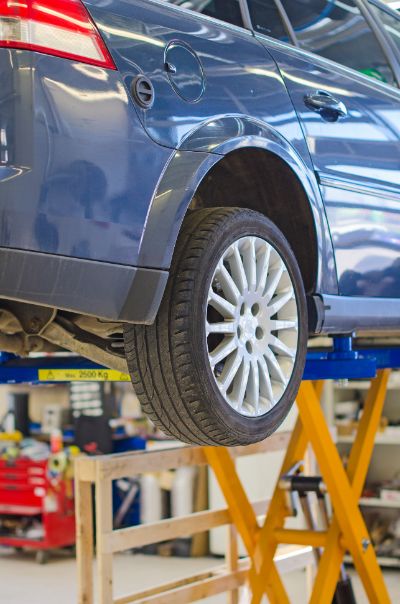Hidden Maintenance Costs When Buying a New Car:
Will They Blow Your Budget?
Not knowing what you are looking for in a car is one of the worst traps you can fall into when you begin your shopping.
Q: I just finished paying over $1,000 to keep my existing car running. If I were to sell it today I’d be lucky to get $1,500 for it. It’s time to buy a new car. The problem is that I’m not sure if it’s better to go into debt and buy a new car which should be trouble free and only require regular maintenance for the next few years, or buy a good used car for up to $6,000 that I could pay for entirely from my savings. I could use some help with this. ~ Kim
With that in mind, here are some key points to consider as you prepare to shop for a vehicle:
Start by Determining Your Vehicle Needs & Driving Habits
Not knowing what you are looking for in a car is one of the worst traps you can fall into when you begin your shopping. It’s like grocery shopping when you’re hungry; you get home wondering how all those extras made it into your bags. Overspending with groceries however, is much less costly than overspending with a car.
Before you consider what to spend on buying a car, jot down:
- How long you intend to own the vehicle
- How much you can afford to spend on maintenance and repairs
- How much wear and tear you will subject the car to
- What you can afford to spend on fuel and insurance
- Which features are the most important
How Do Parking Tickets Affect Your Credit Rating?
Consider Your Budget for a New versus Used Car Before You Get to the Car Lot
Next, think about your household budget and how it will change based on how much you spend on a car. Whenever you make a big purchase, your lifestyle and budget feel the impact. Many people unfortunately only realize this once it’s too late, so spend time crunching the numbers before you set foot on a car lot. Your credit cards will thank you!
Interactive Budget Calculator That Guides You to a Balanced Budget

Hidden Maintenance Costs with a New Car
Buying a new car not only means taking on a monthly loan payment, but you also need to allocate money for the maintenance that’s required according to the car’s warranty schedule, in addition to your routine maintenance and repairs (e.g. brakes, tires, wiper blades, oil changes, etc.). Sales people often forget to mention this fact because in truth, just the expense to maintain your warranty can cost you hundreds of dollars more than you planned each year.
Estimating Repair & Maintenance Costs for a Used Car
After you calculate the true cost of a new car, estimate what maintenance costs you could expect for a good used car. Depending on the car and your driving habits, conservative costs can be calculated using $35 per tank of fuel, and more average costs are about $50 per tank of fuel. For example, this means that if you fill your tank 3 times per month, 3 x $35 is $105 that you should be setting aside in a savings account each month to pay for repair and maintenance costs when they arise.
Owing More Than What Your Car is Worth
Another very real consideration if you buy a new car is how much it will depreciate almost the moment you drive it off the lot. Again, depending on the car, it could lose as much as 25% or more of its retail value in the first year alone. This means that in the early years of your loan, you might owe more than what your car is worth.
Should something unforeseen happen and you are no longer able to afford the loan, e.g. job loss, injury or illness, selling the car may leave you in a deficit position, having to find additional funds to actually pay off the loan in full.
How Do You Qualify for a Car Loan?
The Bottom Line on Buying a Good Used versus New Car
Unless you plan on owning a new car for a very long time, e.g. 15+ years, and you have the capacity to manage all of the costs that come with owning a new car without sacrificing other financial goals, buying a good used car is the way to go. Life happens and while buying a car is an important financial decision, you still need the ability to save for other financial goals, like emergencies, buying a home, vacations, or retirement. Do your homework – ask friends about their cars and read online owner reviews for the cars you’re interested in. Once you’ve narrowed it down to a car you want to buy, take it to a mechanic you trust for a thorough inspection. Spending a little money upfront will help steer you away from an expensive lemon later on.
Related topics:



Great insights on hidden car ownership costs! It’s a reminder to budget wisely beyond just the purchase price.